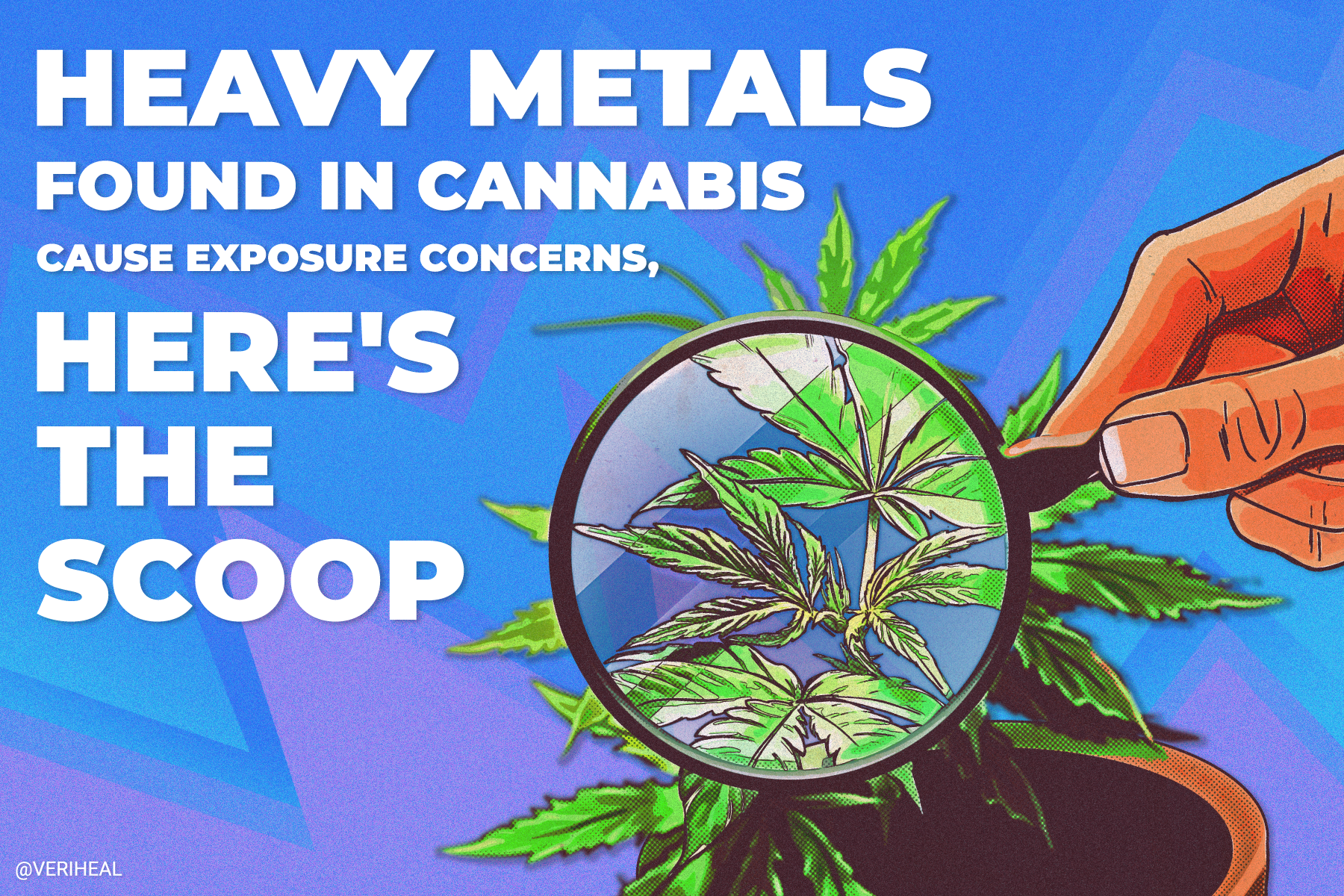Growing cannabis can be a lot more complex than many realize. If a grower does not take extra care, they could end up with contaminated—or even dead—plants. A recent study found that cannabis may contain heavy metals, which could affect the health of consumers. The study also proposed strategies for growers on how to avoid heavy metals in cannabis crops.
Cannabis has an extraordinary ability to “soak up toxic metals” from the soil, but it is suggested that this same good-for-Earth ability is what makes it dangerous for consumers. Since cannabis has the ability to soak up these toxic metals from the ground, it is a very useful tool for “remediating contaminated sites”. However, should consumers decide to consume the very plant which remediated a contaminated site, their own health could be at risk.
Researchers from Penn State did a meta-analysis on the plant’s ability to absorb these heavy metals and discussed the resulting impact on consumers. The team of researchers were even kind enough to propose “a blueprint of strategies for growers to alleviate heavy-metal uptake by their crops”. Before we get into discussing their research, let’s have a look at what heavy metals are and what makes them dangerous when consumed.
Heavy Metals: Definition and Dangers
An article published on IntechOpen explores the mechanisms and health effects of heavy metal toxicity in humans. The article begins by explaining that “metals are natural constituents that exist in the ecosystem,” but that there are heavy metals among them which could have a “direct or indirect impact on the human body”. They explain that some heavy metals like chromium, copper, magnesium, iron, etc, are “essential nutrients that are required for various physiological and biochemical functions in the body” but “may cause acute or chronic toxicities” in larger doses.
The writers explain that heavy metals can affect the central nervous system (CNS). This can cause mental disorders, damage to the blood constituents, liver, kidneys, lungs and other vital organs. This can then lead to serious conditions.
Louis Bengyella, the assistant research professor of plant science at Penn State explains that, “Heavy metals, such as lead, mercury, cadmium and chromium, are known to be carcinogenic” and that “the heavy-metal content of cannabis is not regulated; therefore, consumers could unknowingly be exposed to these toxic metals. This is bad news for anyone who uses cannabis, but is particularly problematic for cancer patients who use medical marijuana to treat the nausea and pain associated with their treatments”.
Why You Should Get Your Medical Marijuana Card
Veriheal has satisfied millions of patients nationwide by giving them access to these benefits
- Larger purchase limits
- Peace of mind
- Enhanced legal protection
- Access to higher potency strains
- Save up to 25% on cannabis purchases
- Skip the line at the dispensary
Study: Impact of Heavy Metals in Industrial Cannabis Bioeconomy
The Penn State researchers explain that certain strains of cannabis are being bred specifically for phytoremediation— which is the use of plants to remove pollutants from soil, water or air. The main problem comes into play when consumers begin to use these strains without considering “why they were developed in the first place”, nor where they came from. When consumers ingest these phytoremediation-bred cannabis strains, they may be unknowingly exposing themselves to these toxic heavy metals.
Cannabis as a Phytoremediation Agent: The Risks of Consumption
The team of researchers specifically investigated “the available information on the application of cannabis in phytoremediation, the fate of heavy metals in cannabis plants, the medical impact of heavy metals in cannabis and agricultural strategies to mitigate heavy metal uptake”. The results of all their efforts were published in an issue of Toxin Reviews— which publishes articles on the role of toxins in understanding molecular and cellular mechanisms, life sciences, protein chemistry, and clinical toxinology.
Cannabis is explained to be a good phytoremediation agent due to its unique physical characteristics, including its fast growth, dependence on few nutrients, high roots, etc. More interestingly, the team found that lead, cadmium, and chromium are “capable of being transported and distributed” throughout the plant, including into the leaves and flowers (buds).
Once those three heavy metals have made their way around the plant, they exit through the trichomes, which are the key to cannabis potency and power. Bengyella explains that, “Trichomes are important because they store the CBD oil and the tetrahydrocannabinol (THC) that are desired by consumers” and that, “This led us to question if these heavy metals are there at the level of the trichome, what can they do to people?”.
The team found that heavy-metal contaminated cannabis can cause health problems “due to the fact that the heavy metals are rarely metabolized, and therefore, accumulate in specific areas of the human body”. Smoking cannabis poses the biggest threat since heavy metals in the cannabis smoke were found to contain selenium, mercury, cadmium, lead, chromium, nickel and arsenic. Bengyella states that, “it is disturbing to realize that the cannabis products being used by consumers, especially cancer patients, may be causing unnecessary harm to their bodies.”
How Growers Can Avoid Heavy Metals in Cannabis Crops
An obvious suggestion would be to use the phytoremediation strains to remove the toxins in the soil, and then to turn the plant into a plastic or fiber product, instead of selling the buds to consumers. However, the researchers from Penn State suggest that growers choose farmland that is:
- not an abandoned industrial site
- performs well in an air quality analysis
- conduct a soil pH test since the pH level impacts the quantity of heavy metals absorbed into a plant
If the purpose of your cannabis crop is to supply consumers with products, then you should absolutely not use the plant as a phytoremediation agent. However, if you are using plants to prepare soil for the growth of other plants, or to remove toxins in general, the plants used to do so should be turned into alternative products that will not be consumed by humans, such as hempcrete or even paper. Bengyella concludes by stating that, “the problem is at the level of the consumer who uses cannabis products, but the solution must come at the agricultural level”.
Author, Share & Comments








